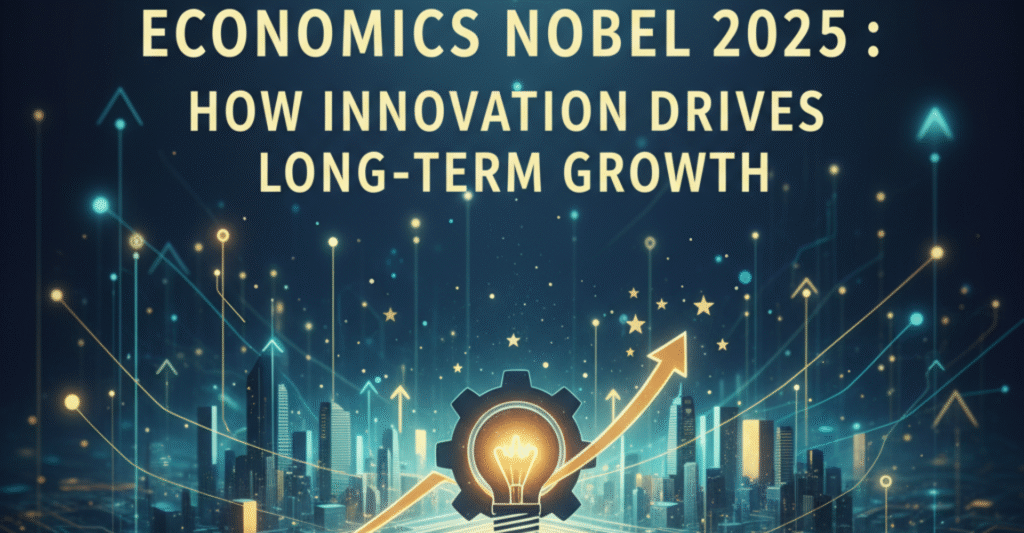
Quick highlights
- The 2025 Nobel Prize in Economic Sciences was awarded to Joel Mokyr, Philippe Aghion and Peter Howitt “for having explained innovation-driven economic growth.”
- Mokyr received half the prize for showing the institutional and knowledge prerequisites for sustained growth; Aghion and Howitt share the other half for formalising growth through creative destruction.
- Their work connects scientific discovery, firm competition, and institutions, giving policymakers a toolkit to nurture innovation (education, competition, finance, and bankruptcy rules).
What happened?
The Royal Swedish Academy of Sciences announced on October 13–14, 2025, that Joel Mokyr, Philippe Aghion and Peter Howitt won the Sveriges Riksbank Prize in Economic Sciences for showing how technological progress, when combined with the right institutions and market dynamics, creates sustained economic growth.
Where does this matter?
Everywhere. Their findings explain why some countries move from stagnation to modern prosperity, why industries keep evolving, and why policy choices in education, competition law and finance change long-run outcomes. The research is relevant for developing economies trying to industrialise for advanced economies managing disruptive tech like AI.
When did their ideas emerge?
Mokyr’s work builds on economic history and long-run studies of the Industrial Revolution; Aghion and Howitt developed formal growth models in the late 20th century that made the concept of creative destruction central to modern growth theory. The Nobel recognises decades of research that together map how innovation translates into rising living standards.
How do their theories explain growth?
- Useful knowledge plus institutions: Growth needs a stock of usable knowledge, people who can apply it, and institutions that let ideas spread. Weak institutions block progress even when knowledge exists.
- Creative destruction (Aghion & Howitt): New technologies displace old firms, but the process raises productivity overall. Competition and the right incentives make firms innovate instead of resting on past success.
- Policy levers: Education, research funding, competition policy, access to finance, and flexible bankruptcy laws help turn invention into broad economic gains. The laureates’ research gives a practical frame for policymakers.
Why this matters now
The prize highlights a live policy debate: how to steer rapid technological change (AI, biotech, green tech) so benefits are widespread. The laureates’ work says it’s not just about breakthroughs; institutions and market structure decide whether breakthroughs lift most people or a few incumbents.


